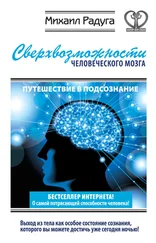Baratin, Clarissa & Beune, Erik & Schalkwijk, Daan & Meeks, Karlijn & Smeeth, Liam & Addo, Juliet & de-Graft Aikins, Ama & Owusu-Dabo, Ellis & Bahendeka, Silver & Mockenhaupt, Frank & Danquah, Ina & Schulze, Matthias & Spranger, Joachim & Boateng, Daniel & Klipstein-Grobusch, Kerstin & Stronks, Karien & Charles, Agyemang. (2019). Differential associations between psychosocial stress and obesity among Ghanaians in Europe and in Ghana: findings from the RODAM study. Social Psychiatry and Psychiatric Epidemiology . 55.
Scott, Karen & Melhorn, Susan & Sakai, Randall. (2012). Effects of Chronic Social Stress on Obesity. Current obesity reports . 1.
Reilly, John & Hughes, Adrienne. (2015). Early life risk factors for childhood obesity .
Koski, H. Marja & Naukkarinen, Hannu. (2017). The Relationship between Stress and Severe Obesity: A Case-Control Study. Biomedicine Hub . 2.
Jackson, Sarah & Kirschbaum, Clemens & Steptoe, Andrew. (2017). Hair Cortisol and Adiposity in a Population-Based Sample of 2,527 Men and Women Aged 54 to 87 Years. Obesity . 25.
Cotter, Elizabeth & Kelly, Nichole. (2018). Stress-Related Eating, Mindfulness, and Obesity. Health Psychology . 37.
Tomiyama, A.. (2019). Stress and Obesity. Annual Review of Psychology. 70.
Poulsen, Per & Biering, Karin & Winding, Trine & Nohr, Ellen & Petersen, Liselotte & Ulijaszek, Stanley & Andersen, Johan. (2019). How does psychosocial stress affect the relationship between socioeconomic disadvantage and overweight and obesity? Examining Hemmingsson’s model with data from a Danish longitudinal study. BMC Public Health. 19.
Zika, Sheryl & Chamberlain, Kerry. (1987). Relation of Hassles and Personality to Subjective Well-Being. Journal of Personality and Social Psychology . 53.
Suleman, Dr & Hussain, Ishtiaq & Shehzad, Saqib & Syed, Makhdoom & Raja, Sadaf. (2018). Relationship between perceived occupational stress and psychological well-being among secondary school heads in Khyber Pakhtunkhwa, Pakistan. PLOS ONE . 13.
Sommerfeldt, Sasha & Schaefer, Stacey & Brauer, Markus & Ryff, Carol & Davidson, Richard. (2019). Individual Differences in the Association Between Subjective Stress and Heart Rate Are Related to Psychological and Physical Well-Being. Psychological Science . 30.
Chatters, Linda. (1988). Subjective well-being evaluations among older Black Americans. Psychology and aging . 3.
E. Ading, Carmella & Bee Seok, Chua & Hashmi, Shazia & Maakip, Ismail. (2012). Religion and gender differences in stress, happiness and life satisfaction. Southeast Asia Psychology Journal. Vol 1 (2012).
King, K.A., Vidourek, R.A., Merianos, A.L., & Singh, M. (2014). A study of stress, social support, and perceived happiness among college students. Journal of Happiness & Well-Being.
Smith, Andrew. (2015). Stress and wellbeing at work: An update. Contemporary Ergonomics and Human Factors. 2015.
Wersebe, Hanna & Lieb, Roselind & Meyer, Andrea & Hofer, Patrizia & Gloster, Andrew. (2017). The link between stress, well-being, and psychological flexibility during an Acceptance and Commitment Therapy self-help intervention. International Journal of Clinical and Health Psychology . 18.
Palmer, Stephen & Panchal, Sheila & O’Riordan, Siobhain & Kelly, Alexander. (2017). Stress and Wellbeing: A Life Stage Model. International Journal of Stress Prevention and Wellbeing . 1.
Naseem, Khalida. (2018). Job Stress, Happiness and Life Satisfaction: The Moderating Role of Emotional Intelligence Empirical Study in Telecommunication Sector Pakistan.
Brosnan, Sarah & Waal, Frans. (2003). Monkeys reject unequal pay. Nature. 425.
Bodenmann, Guy & Atkins, David & Schaer, Marcel & Poffet, Valérie. (2010). The Association Between Daily Stress and Sexual Activity. Journal of family psychology. 24.
Pendry, Patricia & Vandagriff, Jaymie. (2019). Animal Visitation Program (AVP) Reduces Cortisol Levels of University Students: A Randomized Controlled Trial. AERA Open . 5.
Meredith, Genevive & Rakow, Donald & Eldermire, Erin & Madsen, Cecelia & Shelley, Steven & Sachs, Naomi. (2020). Minimum Time Dose in Nature to Positively Impact the Mental Health of College-Aged Students, and How to Measure It: A Scoping Review. Frontiers in Psychology . 10.
Whalley, Lawrence & Deary, I.J.. (2001). Longitudinal Cohort Study of Childhood IQ and Survival up to Age 76. BMJ (Clinical research ed.) . 322.
Calvin, Catherine & Deary, Ian & Fenton, Candida & Roberts, Beverly & Der, Geoff & Leckenby, Nicola & Batty, G. (2010). Intelligence in youth and all-cause-mortality: Systematic review with meta-analysis. International journal of epidemiology . 40.
Sörberg Wallin, Alma & Lundin, Andreas & Allebeck, Peter & Melin, Bo & Falkstedt, Daniel & Hemmingsson, Tomas. (2013). Cognitive Ability in Late Adolescence and Disability Pension in Middle Age: Follow-Up of a National Cohort of Swedish Males. PloS one. 8
Balakrishnan, T & Wolf, L. (1976). Life expectancy of mentally retarded persons in Canadian Institutions. American journal of mental deficiency. 80.
Deeg, Dorly & HOFMAN, ALBERT & ZONNEVELD, ROBERT. (1990). The association between change in cognitive function and longevity in Dutch elderly . American journal of epidemiology. 132.
Doornbos, G & Kromhout, D. (1990). Educational level and mortality in a 32-year follow-up study of 18-year-old men in The Netherlands. International journal of epidemiology . 19.
Martin, Laurie & Fitzmaurice, Garrett & Kindlon, Daniel & Buka, Stephen. (2004). Cognitive performance in childhood and early adult illness: a Prospective Cohort Study. Journal of epidemiology and community health. 58.
Pattie, Alison & Starr, John & Deary, Ian. (2012). Does cognitive ability predict mortality in the ninth decade? The Lothian Birth Cohort 1921. Intelligence. 40.
Henderson, Max & Richards, Marcus & Stansfeld, Stephen & Hotopf, Matthew. (2012). The association between childhood cognitive ability and adult long-term sickness absence in three British birth cohorts: A cohort study. BMJ open . 2.
Calvin, Catherine & Batty, G & Der, Geoff & Brett, Caroline & Taylor, Adele & Pattie, Alison & Čukić, Iva & Deary, Ian. (2017). Childhood intelligence in relation to major causes of death in 68 year follow-up: Prospective population study. BMJ . 357.
Ceci, Stephen & Williams, Wendy. (1997). Schooling, Intelligence, and Income. American Psychologist. 52. 1051—1058. 10.1037/0003—066X.52.10.1051.
Читать дальше












